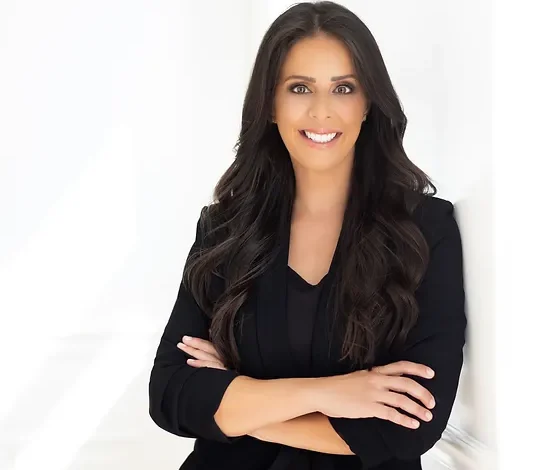Ann Arbor attorney Jinan Hamood has successfully secured her spot on the bench in Washtenaw County’s trial court.
Hamood received 65.84 percent of the vote, defeating challenger Jeffery Worosz, who received 33.46 percent, according to the unofficial county election results.
The current Washtenaw County trial court judge is Timothy Conners, who served as a state court judge for 34 years, according to the Washtenaw County website. His term ends in January, at which time Hamood will take his seat.
The Arab American Political Action Committee (AAPAC) proudly endorsed Hamood. Following her victory, AAPAC founder Abed Hammoud said that her win is well-deserved and a testament to her dedication.

Abed Hammoud with Jinan Hamood.
“We are very proud of Jinan’s decisive win, which is the result of hard work and years of involvement and volunteering,” he said. “She will be a great addition to the Washtenaw County Circuit Court, contributing to the diversity and legal experience of that bench.”
Hamood immigrated from Lebanon at 7-years-old with her family. She graduated from the University of Michigan-Dearborn and then went onto pursue her law degree at Cooley Law School.
“When we moved here, we learned English much faster than my mom and even though I was only 7, by the time I was 8, 9, I was doing most of the speaking for our family,” she said, adding that it would make her upset to sometimes see her mother being mistreated.
“So I grew into an advocate role early on, and then it just developed into what I was going to do next.”
Working in criminal defense, family law and civil litigation, Hamood told The Arab American News she brings that diverse perspective from both a professional standpoint and her own lived experiences.
She addressed the stereotype that Arabs are all assumed to be wealthy, stating that her family came to the United States with nothing and built their way up through hard work, which ultimately helped be a catalyst for her own career journey.
“I think those experiences were important in shaping my career and shaping the way I work with people,” she said.
“I worked with a lot of Arabs in the community in family court and one of the reasons that I felt like we needed that kind of representation is because we don’t make room for how culture impacts the interaction between our American legal system and family rules,” she added.
Emphasizing her diverse experience and skills, Hamood shared that Judge Conners recognized the value of her perspective and brought her onto a case that suited her expertise while she was on maternity leave. She was assigned to serve as a parenting coordinator on a case for a Muslim family, where she worked to navigate the intricate dynamics and work toward a resolution, rather than going to trial.
“We have a large Arab demographic in our county and it would be nice to have that representation on the bench and also to educate others on how to make room for the different cultural changes,” she said.
Hamood said she feels honored to join the circuit court and work alongside the esteemed judges on the bench.
“I have two little girls and for them this is the normal that first of all, women are in roles of leadership,” she said. “And I think that’s awesome that I bring that to them. Being the first Arab and the first Muslim in our county elected to the bench, I see that as a great responsibility.”






Leave a Reply